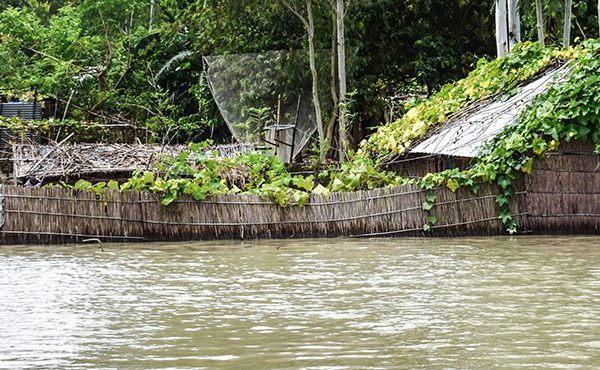World Environment Day 2020: Time to look at how we will recover better
Reading Time: 3 minutes
Today is World Environment Day. The day comes at a time of enormous upheaval. As the world faces COVID-19, we are seeing significant reductions in carbon emissions as well as significant rises in plastic disposable products and medical waste. The question we should all be asking is: What do we want the world to look like after the pandemic?
Bangladesh topped the list of the world’s most polluted countries in 2019, with an air quality index of 83.3. Our nearest contender was Pakistan at 65.81. India was 58.08 and China came in at 39.12. During the lockdown, particularly in the beginning, positive changes were noted in the environment. Air quality in the capital fluctuated from unhealthy to moderate, rather than consistently being unhealthy. TV reports showed dolphins swimming around the Cox’s Bazar seashore, and, in Patuakhali, large numbers of nomadic crabs could be seen traversing the Kuakata beach because of the absence of tourists.
In parallel, a worrying spike in hazardous plastic waste was observed. 14,000 tonnes of hazardous single-use plastic was produced in just one month, according to recent data published by the Environment and Social Development Organisation. This can be directly related to a rise in demand for surgical masks, polythene hand gloves, surgical hand gloves, polythene bags and hand sanitiser bottles. As of April 24, the government has distributed 1,250,000 personal protective equipment sets to hospitals. These sets, when used, will produce approximately 1,870,000 kilograms of hazardous medical waste. There is also the issue of added water usage – the amount of water wasted by leaving taps running while washing hands is equivalent to an additional amount of almost 23 litres of water per day.
Read more: Lessons from COVID-19 on World Earth Day
BRAC banned single-use plastics in its 20-storey headquarters at the end of 2018. While the pandemic reduced demand for plastic in the organisation in some ways – no public events, much less printed materials and employees in the headquarters working from home – there has also been a surge in need for personal protective items and plastic packaging for relief items.
Some of the initiatives to manage waste during the pandemic have included producing 450,000 washable, reusable masks for staff and communities through the Ayesha Abed Foundation and engaging Rohingya artisans to produce 14,517 reusable masks for various groups, including the Bangladesh Police, in Cox’s Bazar.
BRAC is also working with PRISM in Dhaka for safe disposal of used personal protective wear. PRISM purchases the clinical waste at a rate of BDT 200 per kilogram and ensures that it is properly disposed of at its industrial plant. Outside Dhaka, all clinical waste is transferred to government-designated facilities for safe disposal.
In 2002, Bangladesh was among the first countries to ban the use of plastic and polythene bags. While the ban boasted initial success, production and usage of single use plastic bags slowly crept back in. In January 2020, Bangladesh’s High Court ordered the government to ban single-use plastics in coastal areas and in hotels and restaurants in one year.
Unfortunately, all inspections to ban single-use plastic by 2021 are on hold now. As a result, polythene-producing factories and brickyards have reopened. The Department of Environment is planning to ask for a six-month extension to fulfil the goal, as well as working on policies for segregating medical hazards and providing logistic support to PRISM.
Read more: COVID-19: Update from Asif Saleh (30 May 2020)
As we continue to manage the triple-fold health, economic and environmental effects of COVID-19, BRAC will also continue to focus on reducing plastic usage. Going forward, BRAC will gradually ban using products (such as kitchen tissue and toilet paper) that are packaged in plastic.
COVID-19 has shown us how rapidly change can happen. In terms of the environment, the virus has simultaneously given us hope, forced us to slow progress, exposed gaps in our systems and made way for new ways of working. BRAC recently hosted a webinar in which noted economist Dr Atiar Rahman, former Governor of the Central Bank of Bangladesh, made a call for the environment which rings strongly today; “We must be able to make a turn around. We have to opt for green investment and green development for sustainable development.”
On World Environment Day 2020, we are posed with a question: What do we want the world to look like after the pandemic? We should all be asking ourselves how we will recover better, so that our new normal is one which not only works for all of us, but also supports the life systems which sustain us all.
Dr Md Liakath Ali, PhD is the director of Climate Change Programme, BRAC and BRAC International and Urban Development Programme, BRAC. Ayesha Haque is team lead, Programme and Enterprise Communications, BRAC. Sarah-Jane Saltmarsh is the head of Programme and Enterprise Communications, BRAC.





